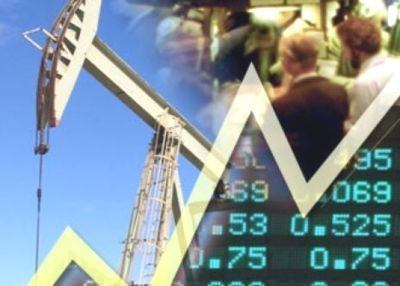Baku, Azerbaijan, Oct. 13
By Aygun Badalova - Trend:
Oil prices will climb further even without Syrian risks, which are a potential wildcard rather than a key driver of prices, Julian Jessop, Chief Global Economist at British economic research and consulting company Capital Economics said.
The rebound in the price of oil over the last few weeks can largely be explained by an improvement in sentiment toward demand and mounting evidence of cuts in non-OPEC supply, according to Jessop.
"Admittedly, the escalation of Russia's military involvement in Syria has provided a new dimension to uncertainty in the Middle East. However, the oil markets are probably right to have given relatively little weight to the latest twists in geopolitical risks," he said in a report obtained by Trend.
"While Russia's intervention in Syria may have played some role in the timing of the jump in the cost of crude, the oil price has been relatively volatile and would surely have risen anyway," he added.
Russia launched its military campaign against the Daesh Takfiri terrorists on September 30 at the request of the Syrian President Bashar al-Assad.
Russian warships also began to launch missiles into Syria from the Caspian Sea last Wednesday, firing 26 cruise missiles against 11 militant targets.
Concerns about the security of Middle East supply are, of course, nothing new, Jessop said.
"The nightmare scenario is that Russian intervention on behalf of the Assad regime, alongside forces from Iran and Hezbollah, leads to some form of military confrontation with NATO or the West's Gulf state allies," Jessop said adding that this would clearly have global implications reaching far beyond the initial impact on oil prices.
However he judges this scenario to be very unlikely, not least because it would be so damaging that all sides are striving to avoid it.
Therefore, Capital Economics oil prices forecasts are driven primarily by the relatively predictable fundamentals of supply and demand. The company believes that one of the factors to support prices will be slower growth in non-OPEC supply.
Capital Economics forecast Brent price at $55 a barrel at end-2015, $60 a barrel at end-2016 and $65 at end-2017, compared to the current level of around $52 a barrel.
Non-OPEC oil supply growth in 2015 will amount to 0.72 million barrels per day, according to the latest OPEC Oil Market outlook.
For 2016, non-OPEC oil supply is expected to show a clear contraction of 0.13 million barrels per day, following a downward revision by OPEC of 0.29 million barrels per day compared to the previous assessment.






